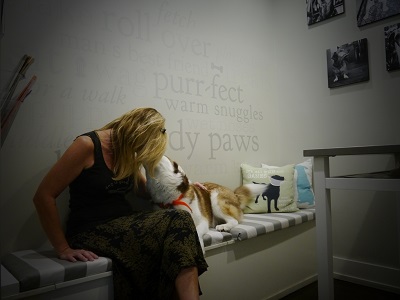How to Choose a Vet (in 10 Steps)

Your pet is a member of your family, and when it comes to his health care, it’s important to look for the best. Whether you’ve just moved to a new place or you’re looking to up the quality of your current animal care, there’s much to consider in your pet’s new doc. Keep in mind that this person should not only have a caring touch, but also be fully capable of handling any emergency situation that could arise. The hardest time to select a vet is when the need is urgent, so take the opportunity to scout around for the best choice now. Give yourself the peace of mind that no matter what happens with your buddy, you have a great veterinarian on call.
License and Accreditation: You certainly wouldn’t visit an unlicensed doctor for your own healthcare, and your pet deserves the same. A professional license to practice in your state is required, and although a membership with the American Animal Hospital Association is not mandatory, it offers a step up in knowing your pet is in good hands. Additional training and certifications should be noted, particularly if your pet has specific health concerns that require specialized knowledge. Check your state’s requirements and don’t hesitate to ask for proof of certifications; responsible vets will have these clearly posted in their clinics.
Referrals: The best form of guidance can be found in the referrals of others. What do current (or former) patients have to say about the care they were provided at the veterinarian you are researching? Good and bad experiences should be noted, specifically those that made all the difference in the satisfaction of the client. How reasonable are the charges? How thorough are the examinations? Was the vet friendly, approachable, easy to talk to? These are all questions you should ask of those who have had their fur babies treated at the vet you are considering.
Connection with the Community: Pay attention to the vet’s connection within the community, something that can be very telling determining the kind of person this vet is with animal care. Does the veterinary clinic provide discounted services to rescued dogs, or discounted fees for spaying or neutering a new pet? A caring vet will reach out to the community as an advocate for proper animal care, serving as an example of how to treat our constant companions with respect and kindness.
Personal Touch: Busy veterinarians can struggle with allotting the proper time for each pet, and it’s not always easy to spend as much time as they would truly like to with your pet. However, a good vet will not lost the personal touch with your pet, regardless of how busy the day is or how many patients are waiting to be seen. Your pet is important, and you should never feel as though your visit is being rushed or that your concerns are being ignored. Sometimes an extra few minutes just to pet your dog or give him a special treat can make all the difference in both your pet’s experience at the vet, and yours!

Diet and Exercise Knowledge: A great way to keep your pet from visiting the vet for more than an annual visit is to provide the right food and treats along with an exercise program, and a good vet recognizes these natural life and health boosters. Responsible vets are knowledgeable about the right program for your pet, and they advocate for proper diet and exercise.
Continued Education: The medical profession is constantly changing, with new and exciting updates in healthcare happening every day. The same is true for veterinary medicine, and a worthy veterinarian will consistently update his knowledge with new techniques and treatments. Many veterinarians receive regular training to keep skills fresh and learn about new options for animal care, and your vet should do the same.
Office Maintenance: Hospitals and doctor offices are kept sanitized and sterilized for a reason, and veterinary clinics should be no exception. Ask for a tour of a vet before signing your pet onto the registry; a worthy clinic should have no problem showing you everything from the kennels to the surgery, and everything should be clean and orderly.
Staffing Requirements: When your pet is being seen at an animal hospital, he comes into contact with many other members of the staff, and each of these individuals should be properly trained and certified. It’s okay to ask the vet about his staffing requirements, what is required of each position, and who would be involved in the care and keeping of your best friend.
Office Hours and Location: Ideally, your vet is located close enough to be reached in an absolute emergency fairly quickly, and the office hours the vet keeps is critical as well. While many vets do not provide 24-hour service, they should at least provide the contact information for those who do. Routine treatments and annual visits need not be handled urgently, but when every second counts, you want a veterinarian who is on call and ready to handle any emergency.
The Most Important Vote: Trust your pet’s instincts when it comes to choosing a vet. It is, after all, his doctor, and it should be someone that he trusts, even during times of sickness or injury. Of course your pet doesn’t get the same excited feeling pulling in to the vet as he would the dog park, but there should be some level of “hey, I know these guys!” that puts your dog at ease. Your vet and his or her staff should always try to make the experience as pleasant and comfortable for your pet as they can.

Dr. Tonia Shatzel at 30-A Vet in Santa Rosa Beach, Florida
Take a few extra steps and check references, do your research and make sure a vet is the right choice for you and your pet. A little extra time spent in the decision can make all the difference in the health and happiness of your best friend.




